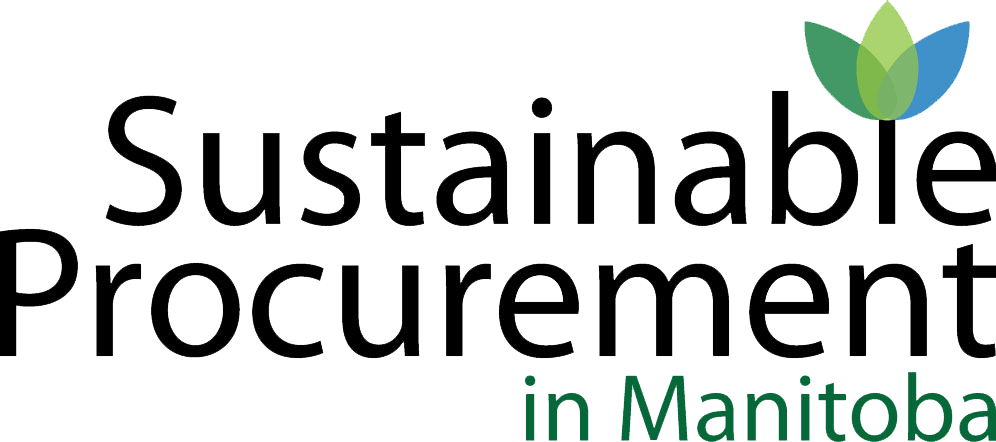You are here
Background
The Manitoba government has supported sustainable procurement in the public sector for many years. The requirement to transition from “lowest cost” to “best value”, in consideration of society at large and minimizing damage to the environment was set out in the Sustainable Development Act, 1997. The Act required sustainable procurement guidelines be integrated into the procurement manuals and procedures of local authorities, school divisions, universities, colleges, regional health authorities and hospitals.  These entities responded by evaluating the life cycle of the goods and services being procured and adding sustainable value to bid documents taking into consideration market availability and cost. Today purchasing by best value is common place.
These entities responded by evaluating the life cycle of the goods and services being procured and adding sustainable value to bid documents taking into consideration market availability and cost. Today purchasing by best value is common place.
In 2018, The Sustainable Development Act was repealed, and Manitoba replaced it with The Climate and Green Plan Act. The new Act continues to promote public procurement as an effective financial instrument that can be used to achieve environmental and other public policy mandates. This Act includes a low-carbon government mandate and in consideration of the large carbon footprint associated with procurement in the public sector, includes the requirement to reduce greenhouse gas emissions and improve sustainable operations through sustainable procurement. The Act recognizes low-carbon issues as an element of the wider environmental goals associated with sustainable procurement. That is to say, the provincial government would like departments and public purchasers to use their spending power to enhance the demand for low-carbon goods, infrastructure and services.
Theme by Danetsoft and Danang Probo Sayekti inspired by Maksimer
